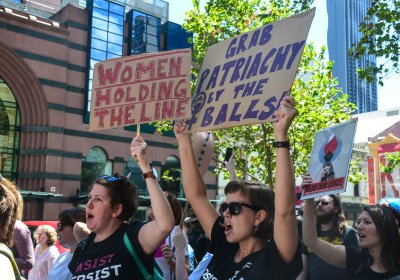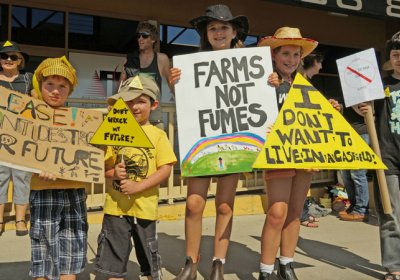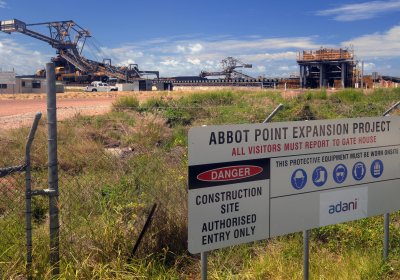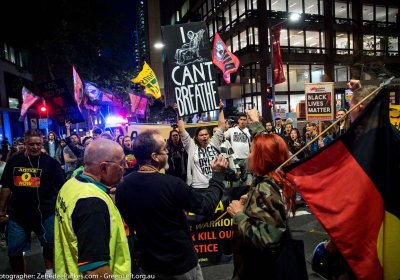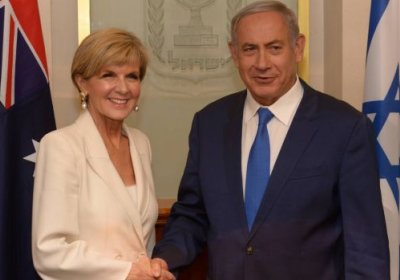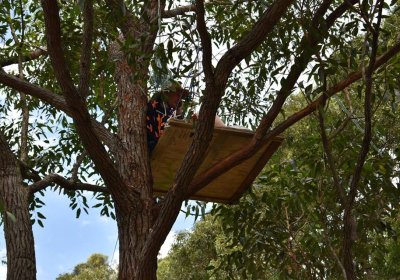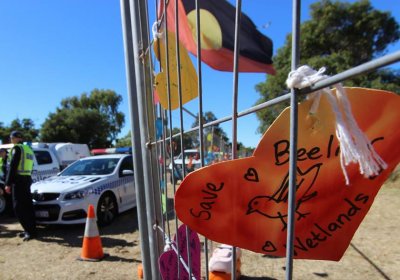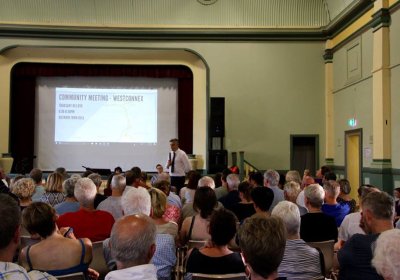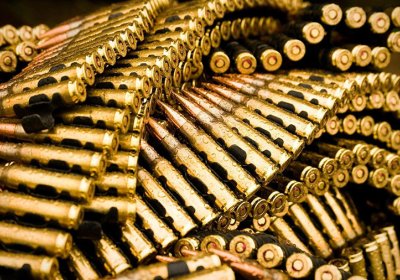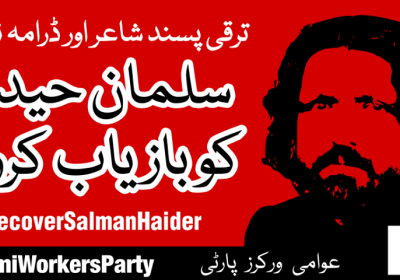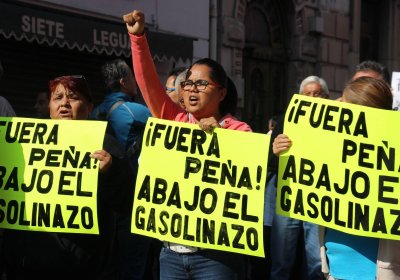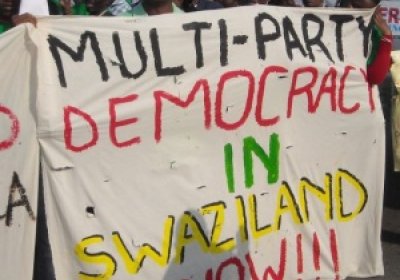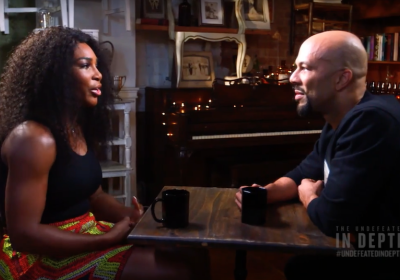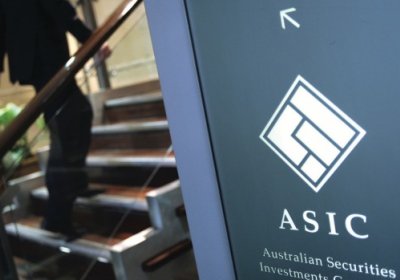Several thousand people joined Women's Marches in Sydney and Melbourne on January 21, a part of a global mobilisation to coincide with the inauguration of the misogynist far-right US President Donald Trump.
Issue 1122
News
Thousands of wetlands protectors participated in a peaceful protest on January 12 at the site of the state government’s Roe 8 highway project, a $450 million extension to Stock Road across the Beeliar Wetlands.
Work on the project was delayed as hundreds toppled the temporary fence surrounding the exclusion zone around the culturally and environmentally significant site. They continued through to encircle an inner compound where a front-end loader for clearing more bush was being kept.
The Socialist Alliance is fielding four activists in the March 11 Western Australia state election under the slogan “For the billions, not the billionaires!”
All four candidates are involved in the campaign to stop the Roe 8 highway and are passionate about creating a society that puts people and the planet ahead of the big corporations.
The New South Wales state government has released changes to the state’s planning law which, if passed, will grant big mining companies more power and reduce communities and councils’ already limited rights of appeal.
The government says the changes to the Environmental Planning and Assessment Act (EP&A Act) 1979, released on January 9, are primarily about promoting “confidence” in the state’s planning system.
As Invasion Day approaches, Murri leader Sam Watson told Green Left Weekly that January 26 was “only a date when a motley collection of boats made landfall on Gadigal country to establish the colony of NSW”.
“It is important to mobilise and march [on Invasion Day] to remind everyone that an illegal invasion took place on this soil," he said..
“They came here to launch a war of genocide against the 500 sovereign nations of this land.
“They came to invade as a fully-armed military force. They massacred and slaughtered tens of thousands of innocent people.
Pro-choice activists in Queensland say the campaign for abortion law reform is entering its “final, most important stage”.
This was the assessment of Kate Marchesi and Olivia King from Young Queenslanders for the Right to Choose about the campaign to support abortion law reform measures introduced by independent state MP for Cairns, Rob Pyne.
The Court of Disputed Returns has dismissed an application by the Northern Territory Electoral Commission to render void the election of Yingiya Guyula to the Northern Territory seat of Nhulumbuy.
Guyula is a Yolngu leader who ran on a platform of treaty and bicultural education for the Yolngu majority seat in the August 27 NT election. After preferences were distributed, Guyula toppled the sitting Labor member Lynne Walker by eight votes. Walker was the only Labor candidate to lose their seat in that election.
Speculation is increasing that the federal government will lend mining giant Adani half the $2.2 billion cost of a rail line to take coal from the proposed Carmichael coalmine in Queensland’s Galilee Basin to the Abbot Point coal terminal.
The money is likely to come from the Northern Australia Infrastructure Facility. The $5 billion infrastructure fund has granted preliminary approval for the subsidy.
The United Nations adopted a historic resolution on December 24 to launch negotiations this year on a treaty to render nuclear weapons illegal.
Australia opposed the resolution. The government said US nuclear weapons are essential for security and their use could be justified in certain circumstances. This position was opposed by Indonesia, Malaysia, Thailand and New Zealand which supported the resolution. The General Assembly vote was 113 nations in favour and 35 against, with 13 abstentions.
A rally for justice for David Dungay-Hill junior, a Dunghutti man from Kempsey, was organised by the Indigenous Social Justice Assocation last December 29.
Dungay-Hill, a 26-year-old Aboriginal man, was an inmate in Long Bay Prison. A sufferer of chronic diabetes, Dungay-Hill ate a biscuit in his cell to restore his blood sugar levels. For this “crime”, eight officers restrained him while another administered a sedative. Seconds later he cried “I can't breathe” and within a minute he was dead.
The deadline for submissions to the Royal Commission into the Protection and Detention of Children in the Northern Territory has been extended by four months.
The royal commission was announced on July 26 by Prime Minister Malcolm Turnbull to investigate allegations of abuse of minors in the NT’s child detention system.
It came on the back of a July 25 Four Corners episode that showed youth detainees being stripped, beaten and strapped into a chair in “Guantanamo-style” conditions.
Federal environment minister Josh Frydenberg has again approved the use of a marine supply base at Port Melville in the Tiwi Islands without an environmental impact assessment and with none of the environmental conditions that were previously imposed.
A spokesperson for Frydenberg said on December 15: “The department has decided the operation of a marine supply base at Port Melville is not likely to have a significant impact on the environment and can proceed without further assessment under national environment law.
Foreign minister Julie Bishop was quick to reiterate the Australian government’s firm support for Israel and distance it from the December 24 vote on UN Security Council resolution 2334 reaffirming the illegality of Israeli settlements on occupied Palestinian territories.
The resolution was passed by the Security Council, with the United States abstaining rather than vetoing the vote, as it has traditionally done with resolutions that have criticised Israel.
In the early hours of last December 12, 55 Carlton & United Breweries (CUB) workers returned to work to the sound of bagpipes and applause.
Five hundred unionists and community members turned out to congratulate the workers on their successful 180-day campaign.
The staff who have to adminster Centrelink’s “robo-debt” system are under huge pressure and are demanding an immediate halt to the punitive approach.
A Centrelink worker told Green Left Weekly that the system was implemented without staff being trained and that they were ill equipped to explain the debts.
On January 11 at 6.30am, tree loppers started felling some of the 500 trees slated for destruction at Sydney Park to make way for WestConnex’s St Peters interchange near the corner of Euston Road and Campbell Street.
Before that, Steffie Leedham had climbed up to a platform connected to three trees. She told Green Left Weekly from the platform that she would stay up there “for as long as it takes to stop WestConnex vandalising Sydney Park”.
Several others tried to stop the felling but were mostly pushed aside by police. At least two were arrested.
A rally for justice for David Dungay-Hill Jnr, a Dunghutti man from Kempsey, was held in Sydney on December 29.
Dungay-Hill was a 26-year-old Aboriginal man who was an inmate in Long Bay Prison. A sufferer of chronic diabetes, Dungay-Hill ate a biscuit in his cell to restore his blood sugar levels. For this “crime”, eight officers restrained him while another administered a sedative. Seconds later he cried “I can't breathe” and within a minute he was dead.
In a statement at the time, Corrective Services NSW said police were not treating the death as suspicious.
In the wake of another death on Manus Island, vigils are being held around the country and more than 200 refugees on Manus Island have signed a letter calling for a Royal Commission to fully investigate IHMS (the Manus detention medical provider contracted to the Australian government) and its political control by Australia’s Department of Immigration and Border Protection.
In a landmark decision on December 16, the Federal Court found the minister for immigration Peter Dutton unreasonably delayed making decisions on applications for citizenship by refugees.
The court also ruled that Dutton erred in rejecting the applications for citizenship of two Afghan refugees several weeks after they commenced legal proceedings. The pair had been permanent residents of Australia for more than four years.
The federal environment minister Josh Frydenberg has again approved the use of a marine supply base at Port Melville in the Tiwi Islands without an environmental impact assessment and with none of the environmental conditions that were previously imposed.
A spokesperson for Frydenberg said on December 15: “The department has decided the operation of a marine supply base at Port Melville is not likely to have a significant impact on the environment and can proceed without further assessment under national environment law.
The challenge to the Tasmanian government's anti-protest laws is set to be heard by the full bench of seven High Court judges early in 2017.
On January 25, Bob Brown and Jessica Hoyt were arrested in north-west Tasmania while peacefully protesting against logging when they walked into the Lapoinya Forest exclusion zone. They were the first protesters to be arrested under the controversial Workplaces (Protection from Protesters) Act 2014.
On December 14, I paid a visit to the Beeliar Wetlands Protectors Camp in Coolbellup and witnessed the arrests of several young protesters for taking non-violent direct action against the Roe 8 highway project which threatens this precious wetlands area and significant Aboriginal sites.
“People from all around the community have assembled here to stop work on the Roe 8 freeway which is going through the Beeliar wetlands and woodlands,” Sam Wainwright, Socialist Alliance's Fremantle City Councillor told Green Left Weekly at the protest camp.
The Wuthathi people have been fighting to get back their spectacular ancestral lands on Cape York, from which they were removed in the 1930s, for nearly four decades. That fight was finally over after the title deeds to the land were handed back in a ceremony at Lockhart River on December 15.
Ownership of the entire white sand country, 1180 square kilometres in and around Shelburne Bay, was formally transferred to the Wuthathi people as Aboriginal freehold land.
Harness Racing Australia (HRA) announced on December 10 it would ban the use of whips in both racing and training from September 1 next year. This will make Australia the first country in the world to implement a ban on whips.
HRA chairman Geoff Want said the decision was taken for animal welfare reasons. "There is compelling evidence these days that society will not tolerate continued cruelty towards animals," he said.
Want said he believed some in the industry would resist change but "people are going to have to adapt to change".
Balmain Town Hall was packed out on December 8 with residents angry with the Baird Liberal government's WestCONnex tollway monster. Peter Jones, WestConnex project director of Stage 3 M4-M5 Link, addressed the meeting at the start and took several questions from the floor before leaving.
In the early hours of December 12, 55 Carlton & United Breweries (CUB) workers returned to work to the sound of bagpipes and applause.
Five hundred unionists and community members turned out to congratulate the workers on their successful 180-day campaign.
The Western Australian Division of the National Tertiary Education Union (NTEU) released this statement on December 9.
* * *
In a move unprecedented in the Higher Education sector Murdoch University management have applied to the Fair Work Commission to terminate the enterprise agreement covering academic and general staff at the University.
Some 2000 activists from a variety of campaigns came together in a rally in Sydney on December 10, International Human Rights Day.
Activist Steffie Leedham is sitting on a platform high on a tree in Sydney Park. The platform is connected to two other big trees in the area of the park that has been fenced off for clearing to start building of the #WestConnex tollway and tunnel project's St Peters interchange.
Green Left Fighting Fund
I wonder what the recently dumped federal Liberal health minister Sussan Ley’s private reaction was to former MP Bronwyn Bishop rushing to her defence over the expenses scandal?
Analysis
As the people on Manus Island prepared to see in the New Year, drunken immigration officials and police beat up asylum seekers who were then taken into police custody and denied food and medical treatment. PNG politician Ronny Knight responded by tweeting “They deserved what they got”.
Barely a week earlier Faysal Ishak Ahmed, a Somali asylum seeker in Manus Island detention centre, died on Christmas Eve after months of being denied adequate medical treatment.
When Fremantle councillors voted in August last year to end the Australia Day fireworks display that it had been running for the past eight years, I fully expected a conservative backlash. But even I was surprised to see the decision featured in news bulletins for months on end.
On one level the whole thing is bizarre. Local governments are not obliged to do anything special on January 26 and most of them don't.
What drove the conservative media and Coalition politicians into a frenzy was the council's reason for doing dropping the fireworks display.
The Federal Court ruled on December 16 that delays by the Department of Immigration and Border Security (DIBS) in making decisions on citizenship were “unreasonable”, prompting hope for people with refugee backgrounds in a similar plight.
One litigant said: “This may set an important precedent for individuals in similar circumstances.”
Acting CEO of Refugee Council of Australia (RCOA) Tim O’Connor said the decision was a “landmark ruling” which recognised the “injustice” citizenship delays had caused.
Throughout last year, devastating conflicts raged in Iraq and Syria. The Afghan War entered its 16th year with a record number of civilians deaths, while in Yemen, a Western-backed, Saudi-led coalition continued to bomb civilian targets using British and American-made weapons.
Job agencies are the government-funded organisations tasked with helping unemployed people find work.
There is growing evidence suggesting this “help” consists of the following:
To most South Australians, Labor Premier Jay Weatherill’s plan for a vast outback dump to host imported high-level nuclear waste is dead, needing only a decent send-off.
Nevertheless, the Premier keeps trying to resurrect the scheme. Why?
It would surprise the federal Coalition government — that assumes we dislike welfare recipients as much as it does — that one of its biggest problems at the start of the year is the Centrelink debt fiasco.
Over the past six months, 170,000 people received debt notices from Centrelink, with the number gradually rising to 20,000 a week.
By comparison, only 20,000 debt notices were issued for the whole of 2015.
On December 16, the Federal Court ruled that delays by the Department of Immigration and Border Security (DIBS) in making decisions on citizenship were “unreasonable”, prompting hope for people with refugee backgrounds in a similar plight.
One litigant said: “This may set an important precedent for individuals in similar circumstances.”
Acting CEO of Refugee Council of Australia (RCOA) Tim O’Connor said the decision was a “landmark ruling” which recognised the “injustice” citizenship delays had caused.
Socialist Alliance’s Dave Holmes gave this speech at a Melbourne rally in honour of Fidel Castro on December 4.
* * *
Fidel Castro was a towering figure in world politics for almost six decades. Now, with his passing the hacks of the capitalist media have been gloating over the death of the “dictator”. Of course, he was nothing of the sort. As he truthfully told director Oliver Stone in the movie Commandante: “I am a slave to the people”. His life is a monument of conscience and loyalty to principle.
World
Deputy secretary-general of the socialist Awami Workers Party (AWP) Ismat Shahjahan expressed deep concern about the mysterious disappearance of renowned literary figure, university lecturer and progressive activist Salman Haider from the outskirts of Islamabad on January 6.
That night, Haider’s wife received a message from an unknown number informing her that Haider’s car could be picked up from Koral Chowk. The AWP calls on the authorities to use all of the means at their disposal to identify his whereabouts and secure his immediate safe release.
Millions of pounds in taxpayers’ money will be used to fund the Conservative government’s bid to smash rail unions so that firms can impose the widespread use of driver-only operated (DOO) trains, rail union RMT warned on January 12.
Research by the union shows that government ministers were inserting new clauses in franchise agreements to allow train-operating companies to claim back any revenue lost to industrial action over the plans to get rid of guards.
Donald Trump may have won the US elections with demagogic, strongman promises to “Make America Great”, but, in the lead up to his inauguration, the hollowness of such claims is clear as he stocks his Cabinet with oligarchs collectively worth billions.
Last year’s presidential election was marked by deep divisions in both the Democratic and Republican parties, on top of a stalemate in Congress between the twin parties of US capitalism.
This year will be the year of the showdown between Catalonia and the Spanish state over whether the Catalan people have a right to vote on self-determination in relation to Spain.
The year starts with the final battle lines already drawn in the contest between the right-wing Spanish-patriotic People’s Party (PP) government of Prime Minister Mariano Rajoy and the pro-independence Catalan government, headed by Carles Puigdemont.
New international talks aimed at ending the Syrian conflict may be unlikely to succeed, but they do mark shifts in the alignment of competing forces.
The United Nations Security Council unanimously voted on December 31 to support a ceasefire in Syria that started the previous day. The latest round of international peace talks are scheduled for January 23 in the capital of Kazakhstan, Astana.
In 2014, Hong Kong was rocked by the “Umbrella Movement” — an ongoing series of mass protests featuring sit-ins against a series of attacks on democratic rights.
Robin Lee, a British left-wing activist living in Hong Kong who is an editor of the Borderless Movement, was interviewed by Green Left Weekly’s Alex Bainbridge about the current situation.
***
Can you make some comments on the current political situation in Hong Kong since the 2014 democracy uprising?
New Year’s Day is usually a moment of peace in the chaos of Mexico City — but not this year. For Mexicans, 2017 began with nationwide protests against the government’s plans to deregulate petrol prices, a move opponents say will hurt everyone from the poor to middle class.
Since January 1, protests have only continued to spread, with almost daily demonstrations in nearly every large city. Major highways have also been blockaded by furious transport workers, who say they can’t keep up with rising prices at the bowser.
Northern Ireland is in the grip of a deep political crisis.
The power-sharing administration in the six northern Irish counties still claimed by Britain between the Irish republican party Sinn Fein and the pro-British Democratic Unionist Party (DUP) collapsed when Sinn Fein Deputy First Minister Martin McGuinness resigned on January 9 and called for new elections.
Explaining his decision to resign, McGuinness cited “growing DUP arrogance and lack of respect, whether that was for women, our LGBT community, ethnic minorities or the Irish-language community and identity.”
In a victory for the Native American-led resistance to the destructive Dakota Access Pipeline (DAPL), last month the Obama administration denied DAPL permission to drill underneath the Missouri River in the Standing Rock Indian Reservation.
Labor for Standing Rock, a group of trade unionists supporting the anti-DAPL campaign, released the statement below on January 4.
When Donald Trump is sworn in as president on January 20, he will take over the running of the US intelligence agencies — the CIA, FBI, NSA etc — that have brought charges to discredit the outcome of his election.
The Electoral College has rubberstamped Trump’s election and Congress has ratified it. The storm over allegations of Russian interference in last year’s elections will pass as The Leader takes charge and cleans house in these agencies.
But there are some things that should be noted about this brouhaha.
Aleppo and the humanitarian crises has dominated international media in the past weeks. News articles with exceedingly dire headlines have increasingly dominated and many heart wrenching images have emerged of Regime brutality.
More than 500 people were arrested in West Papua on December 18 during self-determination protests that Free West Papua said were demanding the United Liberation Movement for West Papua be granted full membership of the Melanesian Spearhead Group.
The Kurdish people are an oppressed nationality without a state, whose homeland is currently divided between five countries in the Middle East. Despite this, the left-wing Kurdish movement in Syria’s north is not fighting for a separate nation state. Rather, it is seeking to unite all ethnic groups and religions to fight for an autonomous, participatory democracy as part of a profound social movement that puts women’s liberation at its heart.
After a coup and 22 years of authoritarian rule, The Gambia’s President Yahya Jammeh conceded power in elections on December 1. We can learn from The Gambia that we are stronger united than divided, says Swazi activist Bheki Dlamini.
Swaziland and The Gambia are two of Africa’s smallest nations, both less than 20.000 km2 and with populations below 2 million. Both got their independence from Britain in the 1960s, and both are more or less engulfed by, and to a large degree dependent on, a much larger and more powerful neighbour.
More than 500 participants gathered at the Trade Union Congress headquarters in London on November 26 for the annual Latin America Adelante conference, now in its 12th year.
With more than 70 different speakers and 30 different workshops and plenary sessions, plus the concurrent Alborada film festival, Latin America Adelante has become one of the most important and well-known gatherings of solidarity with a continent that is increasingly facing a right-wing neoliberal backlash.
Culture
One of the best tennis players and athletes of all time, US star Serena Williams has been scrutinised so much for being a strong, Black woman that she herself began to doubt her own strength and body, the star told her long-time friend and rapper, Common, in a special ESPN interview last month.
“There was a time where I didn’t feel incredibly comfortable about my body because I felt like I was too strong,” Williams said during the one hour-long ESPN special, The Undefeated In-Depth: Serena with Common.
Hendrix, possibly the greatest-ever rock guitarist, arrived in public consciousness at exactly the right moment. His music summarised the desire of millions of youth to break through to a new society.
The Conscription Conflict & the Great War
Edited by Robin Archer, Joy Damousi, Murray Goot & Sean Scalmer
Monash University Publishing, 2016
Paperback, $29.95.
Good news (for a change)
The federal government has officially walked away from its plan to privatise the Australian Securities and Investments Commission corporate database of critical information on more than 2 million private companies in Australia.
Opposition to the proposed sale has grown. A GetUp! petition signed by more than 40,000 academics, journalists and others called on the government to reverse the plan as the privatisation would impede corporate transparency in Australia.
BP finally announced in late December it had withdrawn its two environmental plans for exploration drilling two months after announcing it would ditch the controversial project.
Australia’s offshore oil and gas regulator, NOPSEMA, had already sent back BP’s application to drill in the Bight three times and was due to make a decision on its latest two submitted plans by the end of the year.
Chevron, Santos, Murphy and Karoon Gas still have exploration licences but will face the same massive costs and increasing community opposition that BP experienced.
